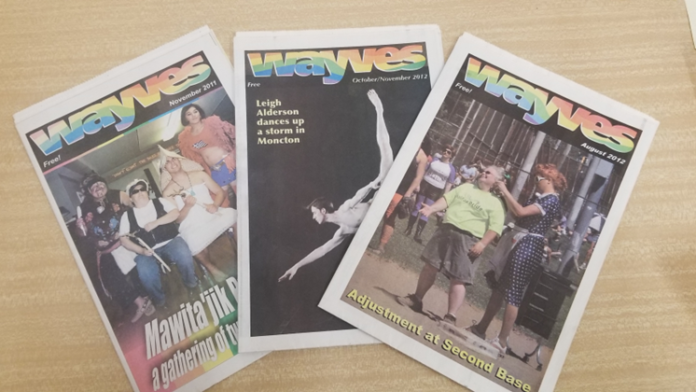
Meredith Batt and Dusty Green were awarded the Platinum Jubilee medal for their book Len & Cub, A Queer History, which recalls the love story of two men in rural New Brunswick in the early 20th century.
The book was well received by queer readership across Canada. Selections of photos from the book were also exhibited at the Beaverbrook Art Gallery.
Batt expressed that winning this medal is particularly special for them as it was awarded by Brenda Murphy, New Brunswick’s first openly 2SLGBTQIA+ lieutenant-governor.
“People have been really touched and queer people feel seen. The comment that we’re getting over and over again is that people can see themselves in [Len and Cub],” said Batt.
Batt is also the president of the Queer Heritage Initiative of New Brunswick (QHINB). They co-founded the initiative with Green in 2016.
Batt said Green was an intern at the Provincial Archives of New Brunswick (PANB) and came across images of prisoners of war during World War Two in drag. Never having seen anything like it, he believed there were more pieces of queer and transgender history in New Brunswick to be discovered.
“It challenged his idea of history and what other minority groups are being left out of the narrative, including queer and trans voices,” said Batt.
In founding the initiative, the pair set out to collect and preserve artifacts that represent New Brunswick’s queer history. The QHINB has collections of artifacts, written publications and oral histories.
Green is currently taking a break from his volunteer work with QHINB, but Batt continues to work as the initiative’s president.
The initiative made its first transfer to the provincial archives in 2019. Batt said in the past, archival institutions were not accepting of queer and transgender historical records.
The PANB is one of the few organizations that offers repository space for such records.
Batt admits that sometimes, going through the records can be emotionally taxing.
“A lot of [the records] are court cases for gross indecency, often tracing stories of queer people as they were portrayed in the media … it’s all slanted to one side, to do with morality and legality,” explained Batt.
The initiative plans on partnering with the provincial government to host information sessions about queer and transgender history in New Brunswick schools. Batt said the sessions are important to work against the homophobia that they say still exists in the province.
“I’ve been surprised, especially in the past several months, just how terrible things are for queer youth across the province. There’s a lot of homophobia that’s still present in communities and in families,” said Batt.
Batt said in the coming years, QHINB wants to focus on collecting more Acadian queer history. They explained the historical intersection of Acadian culture and queerness is not represented in their collection, and they would like to see that change in the coming years.
Students can access artifacts, publications and oral histories of queer and transgender folks using QHINB’s finding aids on their website.
